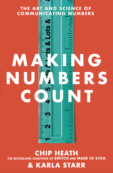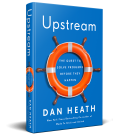From The Onion, celebrity gossip that doesn’t stick.
Credibility
Who’s the Exaggerator?
What, exactly, is William J. Broad trying to say in this NYT piece? The gist seems to be: Scientists are disputing the alarmist claims of Al Gore’s global-warming movie An Inconvenient Truth! Except for the many world-class scientists who, er, strongly support it. And except for the many others who might quibble at the edges but basically think he got it right. (Let’s remember, folks, we’re talking about a movie, not a Ph.D program.) Follow that?
There is a kind of willful blindness displayed in this piece. The core message of Gore’s movie is: Global warming is real, and it’s time to take it seriously. Which is something Gore has been saying for years, and which the overwhelming majority of scientists now agree with. That’s an important message — it could well turn out to be THE critical message of the 21st century — and it was well communicated in the movie by Gore. (To be fair, in support of the skeptical view, Broad points out that there were only FIVE hurricanes in the Atlantic season this year — not the NINE predicted! Take that, Science!)
Unfortunately, repeating what might be the critical message of the 21st century is not “news.” “News” is finding a couple of random people, such as the article’s guest star Don Easterbrook, a geologist at Western Washington University, who argues with some of the movie’s points. And “newsiness” further requires Broad to bolster up these stray arguments into the illusion of a backlash against Gore.
(Side note: No doubt it will come as a Genuine Shocker to anyone who has followed the global-warming debate that one of the critics quoted is none other than Bjorn Lomborg, who has made a career out of being The Scientist that you quote when you want a global warming skeptic who can put a few statistical-sounding sentences together. Quoting Lomborg as a scientist on global warming is kind of like quoting Joe Lieberman as a Democrat on Iraq.)
The ugliest line in the article is this: “Mr. Gore, citing no particular time frame, envisions rises of up to 20 feet and depicts parts of New York, Florida and other heavily populated areas as sinking beneath the waves, implying, at least visually, that inundation is imminent.”
Implying … that inundation is imminent. (At least visually!) No one who has seen the movie will find this line credible. But the exaggeration (and others like it in the article) makes you wonder whether Broad’s piece isn’t simply an op/ed in news clothing.
The ARSE
Via Guy Kawasaki and Electric Pulp, there’s now an “Asshole Rating Self-Exam” (ARSE) for Bob Sutton’s new book The No-Asshole Rule. And what a brilliant first question: True/False: You feel surrounded by incompetent idiots.
Penn & Teller on Numbers
Clarke Ching sent over a link to the Penn & Teller show Bullshit! The Numbers. (30-min Google video) There’s some great stuff here — some cockroach wrangling, some binge-eating, some live street cons, some cursing at Frank Luntz, and a hidden-camera expose of a timeshare salesman. The theme is the way numbers, especially big ones, tend to fuzz our judgment.
Favorite quote: “Your odds of being killed by tap water in the next year are 20 times greater than your odds of winning a multi-state lottery jackpot.” Erp.
Steven Pinker’s forthcoming book
Interesting teaser article on Pinker’s new book The Stuff of Thought, due out this fall.
Even something as seemingly straightforward as asking for the salt involves thinking and communicating at two levels, which is why we utter such convoluted requests as, “If you think you could pass the salt, that would be great.”
Says Pinker: “It’s become so common that we don’t even notice that it is a philosophical rumination rather than a direct imperative. It’s a bit of a social dilemma. On the one hand, you do want the salt. On the other hand, you don’t want to boss people around lightly.
“So you split the difference by saying something that literally makes no sense while also conveying the message that you’re not treating them like some kind of flunky.”



